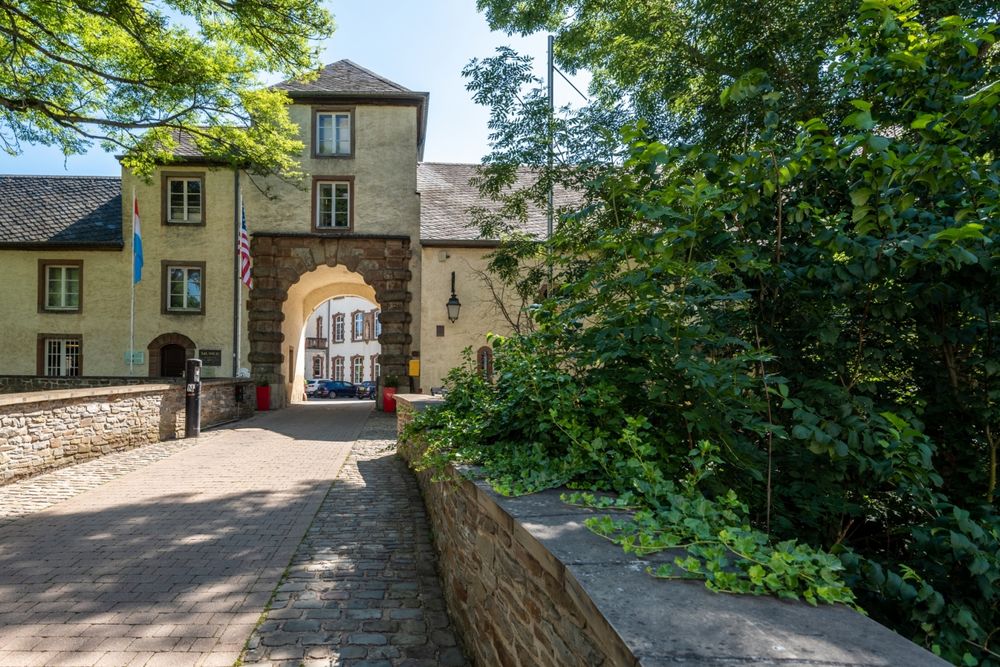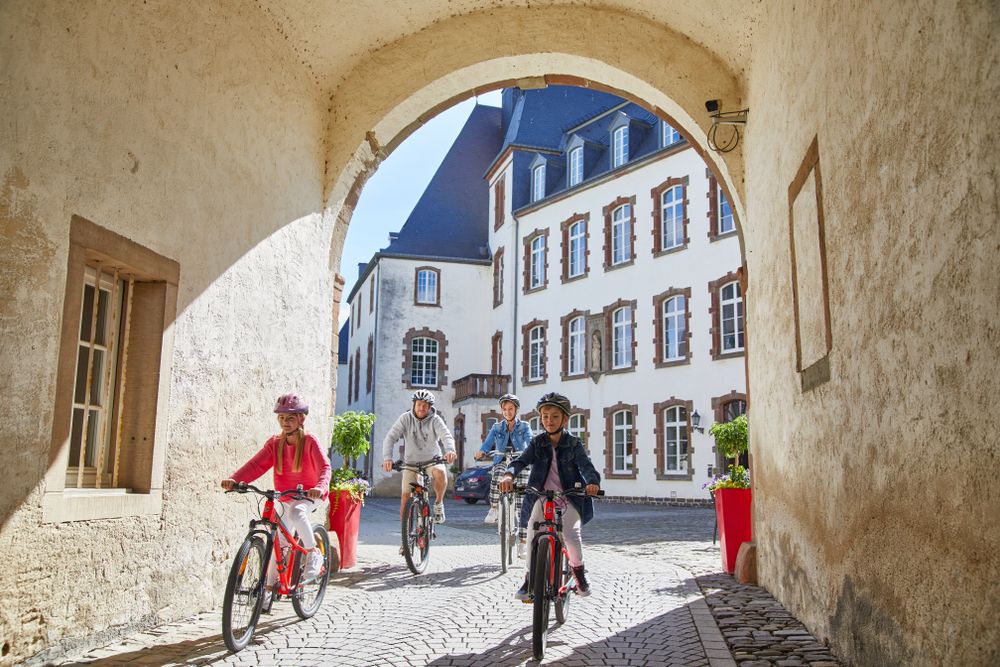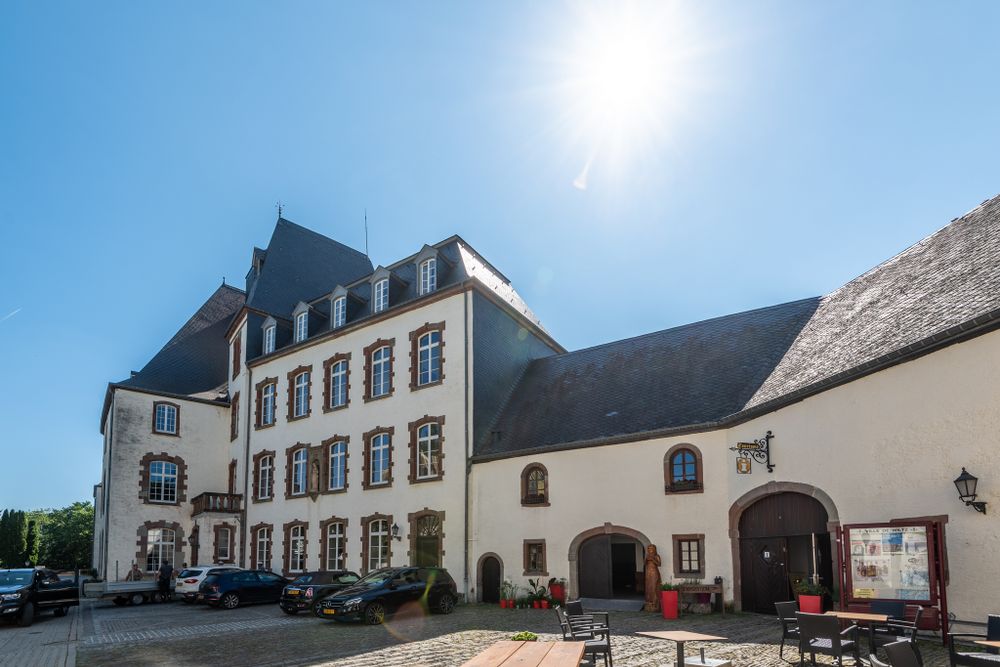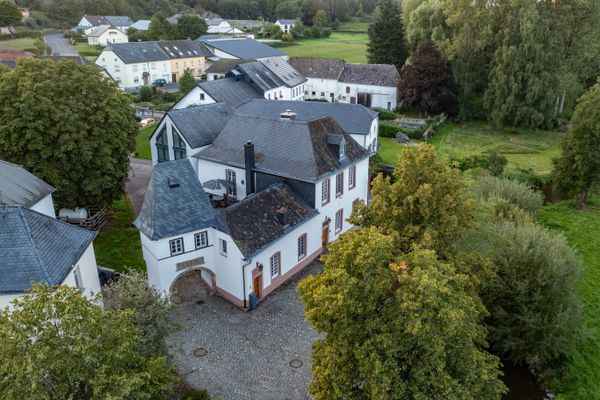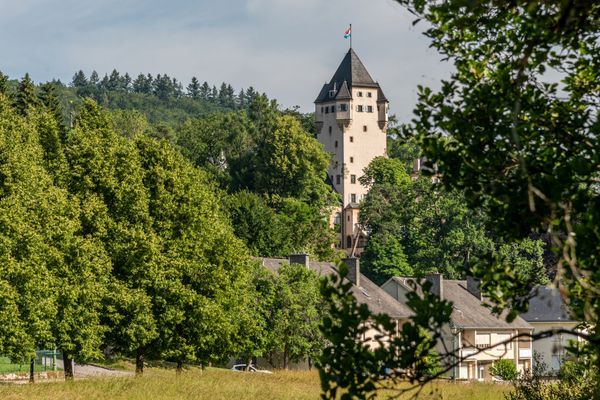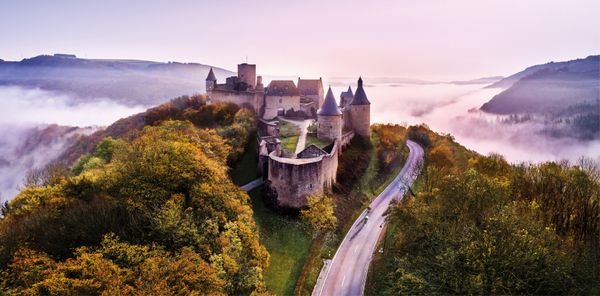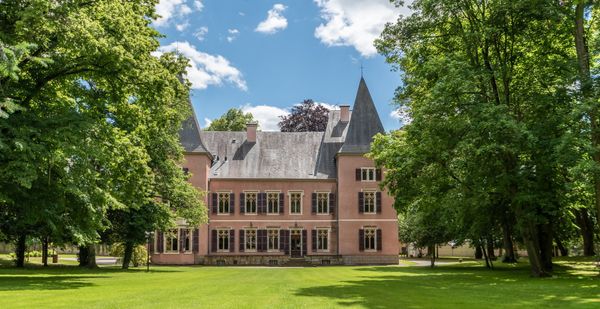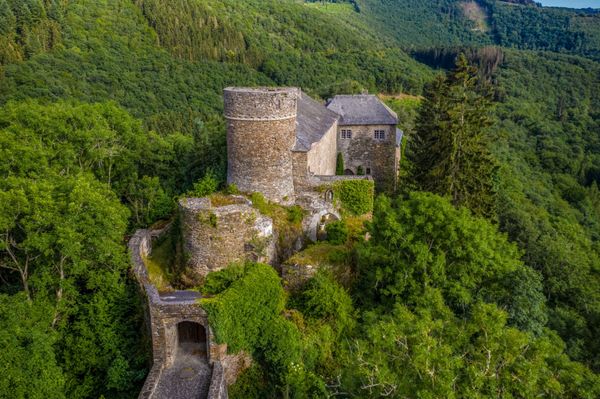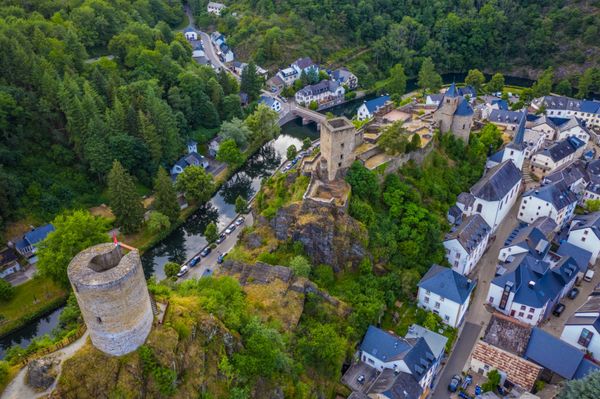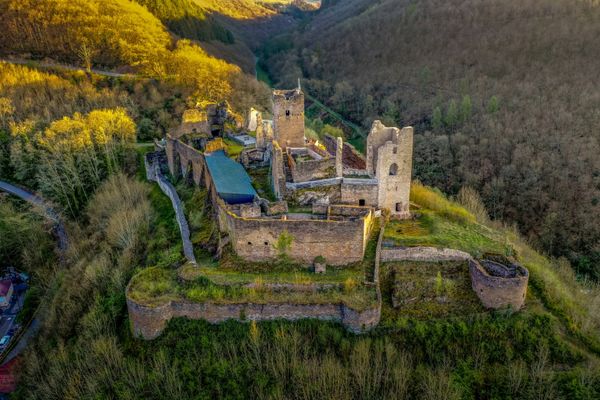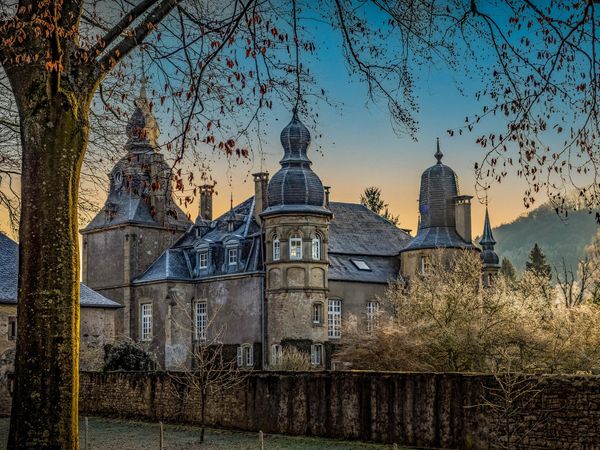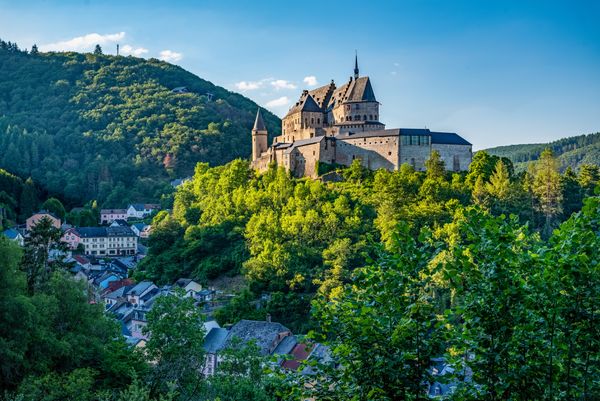
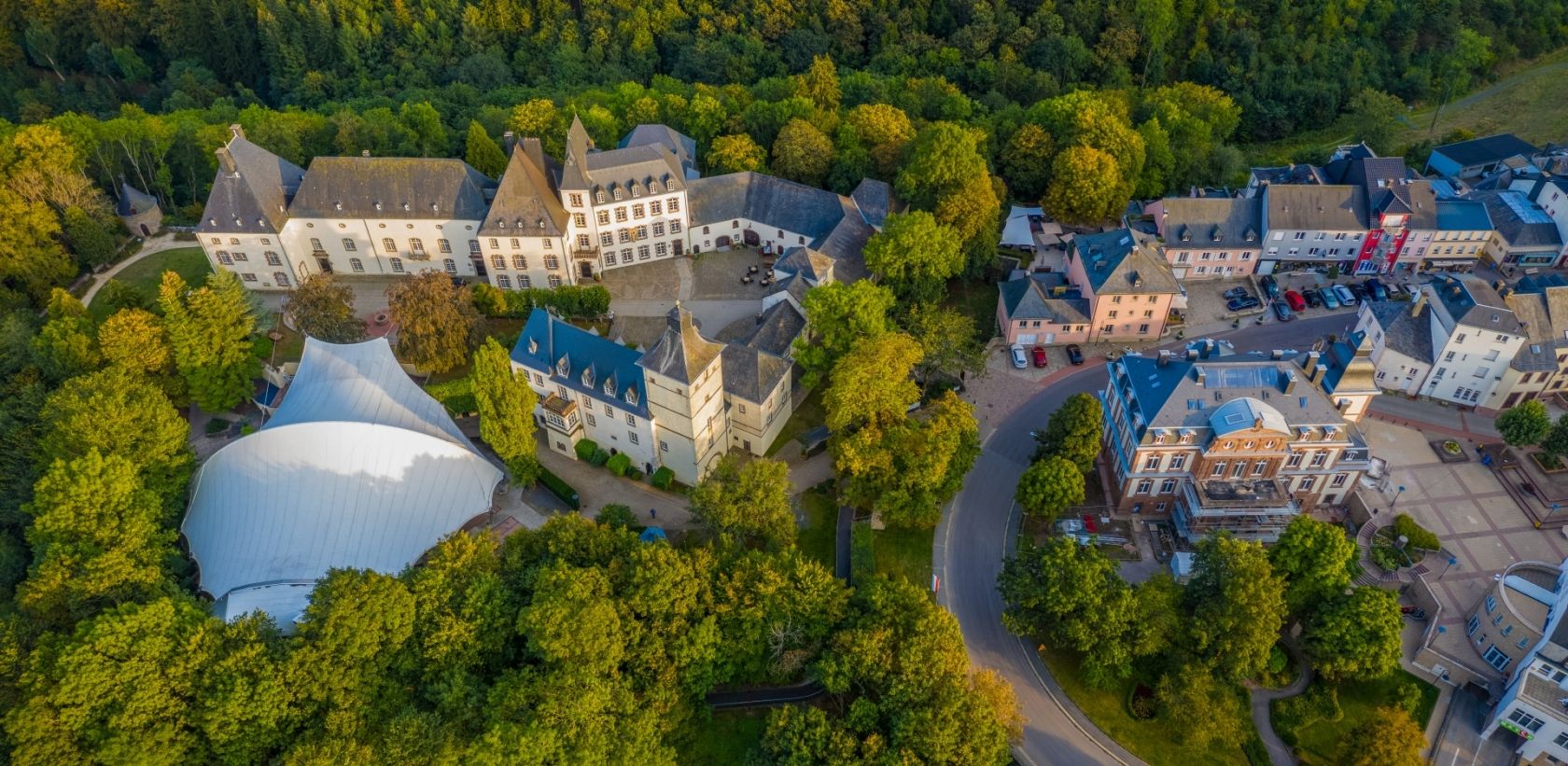
© Visit Éislek
Wiltz Castle
Where? 35, Rue du Château, L-9516 Wiltz
Discover the imposing Wiltz Castle! Explore the Museum of the Art of Brewing and the Battle of the Bulge Museum and experience cultural events in the charming amphitheatre against this historic backdrop.
The actual, first castle of Wiltz was located in Niederwiltz, where the deanery church stands today. It was supposed to protect the town from its enemies, but the location was so badly chosen that it was constantly taken.
In the 13th century, searching for a more favourable location, the lords of Wiltz built the new castle on a higher promontory.
In 1631, under the rule of Count Jan, construction began on the Renaissance castle that still stands today. The new building was completed around 1720.
Today, the castle houses the National Brewing Art Museum and the Museum of the Battle of the Bulge, as well as a tourist information.
In June and July, the staircase of the castle serves every year as the stage for the Wiltz Festival.
Concerts, theatre events and other artistic performances are presented live on stage in the magnificent amphitheatre in front of the backdrop of the castle.
Practical information
- Toilets
Culture info
- Visit possible (& visit information)
Opening hours
Opening hours are subject to change. Please check them before your visit in order to be sure.
| Wednesday | 16.04.2025 : 09:00 - 12:00 , 14:00 - 17:00 |
| Thursday | 17.04.2025 : 09:00 - 12:00 , 14:00 - 17:00 |
| Friday | 18.04.2025 : 09:00 - 12:00 , 14:00 - 17:00 |
| Saturday | 19.04.2025 : 09:00 - 12:00 , 14:00 - 17:00 |
| Sunday | Closed |
| Monday | 21.04.2025 : 09:00 - 12:00 , 14:00 - 17:00 |
| Tuesday | 22.04.2025 : 09:00 - 12:00 , 14:00 - 17:00 |

